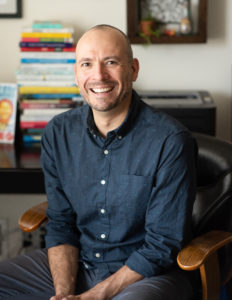
We’ve been running our flagship summer day camp, Camp EDMO®, and year-round after school programs in Northern California since 2004. When COVID-19 forced the closures of California schools in March of 2020, our EDMO team took on the design challenge of a lifetime. In the span of ten days, we designed and prototyped a live, online, interactive learning platform. We revamped our programs to ensure that our integrated STEAM and Social-Emotional Learning (SEL) curriculum was delivered virtually in a fun and engaging way for kids whose homes vary in size, space, and availability of materials.
Most importantly, we introduced our revolutionary Honor System Pricing model, to address inequities in accessing high-quality education programs. As a non-profit organization, we are committed to removing barriers that prevent all children from accessing our programs. Honor System Pricing allows families to choose whether they pay full price, donate more, or apply a 50% off or 80% off Honor Code if they need financial assistance. There are no financial aid forms, no wait times, or hurdles to overcome.
It was a whirlwind to remodel and restructure all of our programs to keep our organization going. With a dedicated volunteer staff, The EDMO Method, and a little faith in humanity, we made it happen. In fact, we were so successful that our online camps engaged over 5,000 kids from 45 states and 7 countries this summer. Want to know the secret of our success? Here are four quick tips we learned that can help your online classroom thrive, too.
Four EDMO Tips for Online Learning
1) Learn in Small Groups
Similar to what some schools planned for hybrid in-person classes, splitting students into smaller groups with either a morning or afternoon session works great for distance learning, too. We recommend 8-15 kids per session, max. This lets instructors see the whole class on-screen and provides an opportunity for a personal connection with each student.
2) Establish a Check-in Goal for Yourself
Ideally, you are checking in with all of your students during class to build rapport and ensure that they feel seen. However, this can be difficult when you are not in the same room as them. One way to address this is to establish a goal for how often you will check in with them. We found that setting a timer for every 5-10 minutes works well. You can use a variety of methods from spotlighting kids one at a time on the screen (if your video conferencing app allows) to asking them questions about their interests or what their day looks like when they are not in class.
3) Use Sign Language
Remember that kids don’t have to speak to engage. At EDMO we teach them three common ASL signs to use when their microphones are on mute:
- Me, too: Like a hang loose sign. Stick out your thumb and pinky, wave back and forth.
- Clap: Jazz hands, this looks great in the Zoom gallery view.
- Thumbs up/thumbs down: “Are we good to go on to the next step? Do you understand the direction? Give me a thumbs up!” Allow for thumbs down and middle thumbs.
4) Integrate SEL skill-building into your lessons
- Start your class with a feelings check-in every day to gauge where everyone is emotionally.
- Provide opportunities for kids to practice using their SEL skills so that they can develop their “emotional intelligence” or “EQ”.
- At EDMO, we use our own Social Emotional Learning (SEL) framework, The EDMO Method which helps children develop character traits such as responsibility, empathy, initiative, problem-solving, and emotion management – skills that last a lifetime.
We’re proud of what we’ve accomplished so quickly. We successfully revamped EDMO from an in-person camp to an online learning organization that provides programs that fit any schedule or budget. It took a lot of thoughtfulness to adapt systems we already had in place, like The EDMO Method, and to re-design the way we approached equity into Honor System Pricing. Now we’re taking what we’ve learned year-round, to support schools, districts, and organizations along with families through our Clubs and Coach programs for kids. Come check our programs out at campedmo.org.
Eduardo Caballero is executive director and co-founder of EDMO, a non-profit on a mission to make equitable, high-quality STEAM & SEL education programs accessible to all communities in order to cultivate curious, courageous, and kind humans everywhere. If you’d like to learn more about EDMO’s live, online, interactive learning platform, please visit https://campedmo.org/.